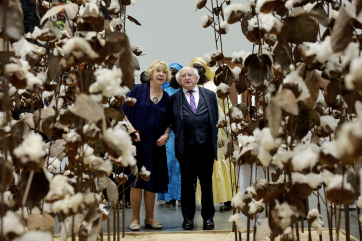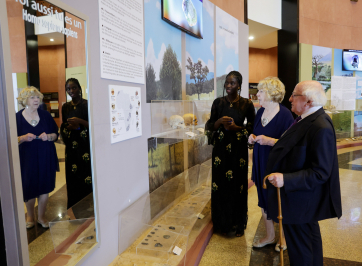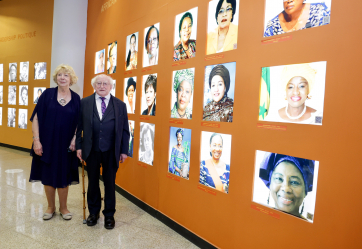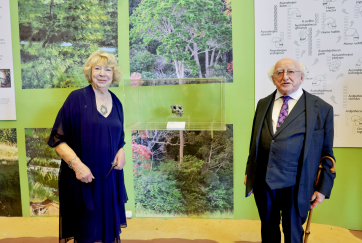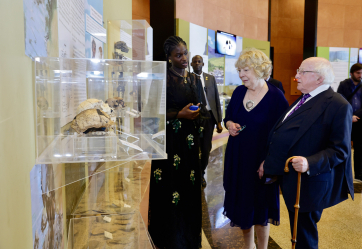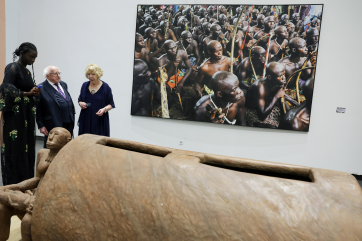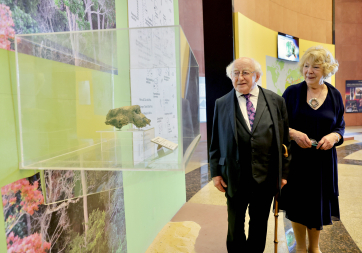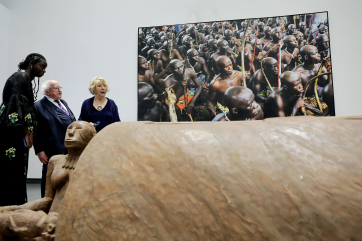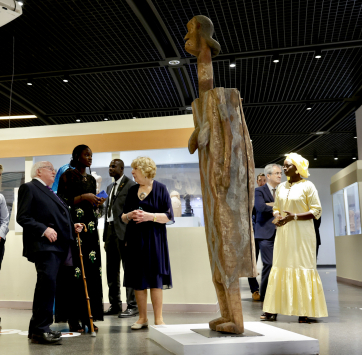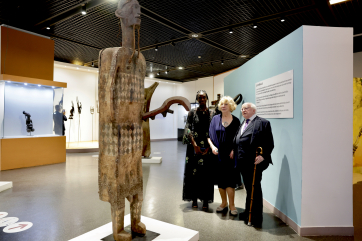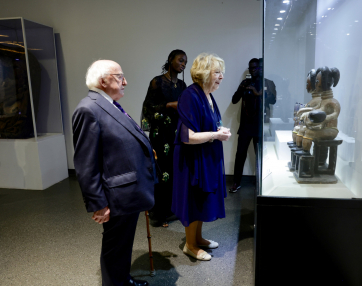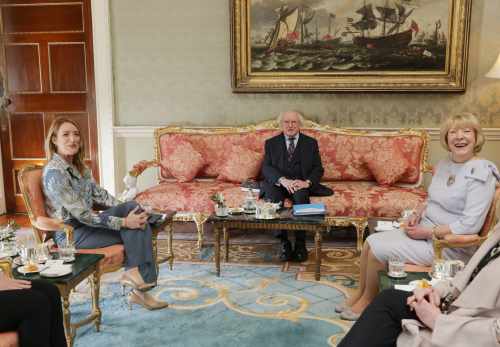“Going Forward with Best Approaches” Closing Speech at the International Conference on Agriculture “Feed Africa: Food Sovereignty and Resilience”
27th January 2023, Dakar, Senegal
Your Excellencies,
Prime Ministers,
Distinguished Guests,
May I congratulate President Macky Sall, President of Senegal, President Adesina of the African Development Bank, Moussa Faki, Chairperson of the African Union Commission, and all the Heads of State for their vision and leadership in organising this Summit.
It has been a great privilege to be present at what I believe is a meeting with the capacity to make an enormous response, not just to the needs of Africa, but to the needs of humanity at this time.
There is no need to report the urgency of the conditions in which we find ourselves in Africa with regard to food security. The challenge we face is, above all else, a challenge to humanity itself.
Yes we are addressing a malfunction in global food security but, far more importantly, we are addressing the future of Africa and its people - 17% of the world's total population and 24% of the world's young people.
I want to wish all of the compacts which have been presented this week success. It is of importance that they are under the vigilance of elected leaders, so many of whom have such good records on inclusion with regard to gender and to youth.
That strong connection between gender and food security demonstrates the importance of integrating women into policy responses. Engaging women—as leaders and agents of change—in decision-making must be central to our policy response to feeding Africa, deepening that much-needed paradigm shift in the discourse on food security is so important.
As to the steps which we must now take - with the urgency it demands we must respond to the humanitarian crisis, but above all else, we must tackle the structural causes of the issues we face.
We cannot tackle food security as an isolated issue, there are a number of things which we must do together:
- We must address debt restructuring and debt conditions and achieve an adequate multilateral response;
- We must address the balances between the cultural realities of sustaining family and of participation in economies;
- We must offer not only freedom from hunger, but opportunities in new forms of economy to young people. They are uniquely positioned to offer us a new balance of economics, ecology, society and culture;
- We have to end dependencies in food security both in terms of supply and the distribution of staples;
- We have to transfer technology, locating the ownership of Intellectual Property on the continent where it is being used. In doing so, we must develop a legal framework that goes beyond traditionally recognised intellectual property rights regimes, regimes that can only be justified if they foster food security.
The starting point in all of this is the needs of Africa in dealing with African market realities, and attaining such a presence for Africa in global markets as represents a newly reconstructed form of fair trade and responsible, accountable investment.
We must draw public attention to the consequences of commodity speculation on key agricultural inputs. We must build regional grain reserves as well as a global food aid apparatus fit for the protracted crises we face, as the Special Report of the International Panel of Experts on Sustainable Food Systems has argued[1]. Achieving diversity of food production and fair trade systems, cutting harmful dependencies through new models that include holistic agroecology. These should be our urgent tasks.
In the monitoring of the compacts which have been developed, we have to draw on the new field studies being reported by African field-workers that we have available to us. Everybody will benefit if there are reports on what is working, what is partially working and what is not working. The compacts acknowledge the value of a demonstration effect. People are moved when they see successes and can then show a willingness to take on good ideas and apply them.
I suggest it will achieve the very best results if funders, such as the African Development Bank, work closely not only with research institutes, both at the national and international level, but particularly take account of these field studies to which I refer, conducted over time in the field in Africa to ensure that findings from the latest research feed into the design and implementation of any financial supports and investments.
It is crucial, too, that indigenous wisdom is incorporated into the design and implementation of any food security initiatives.
We must abolish all the distances in accountability and we must have reports on how what has been called ‘the empty bucket of loss and damage’, which has been agreed at COP27, is being filled. This could include, for example, an ‘empty bucket index’ reporting every three months to monitor whether the promises are being delivered on.
Let us all hear the message from Africa. The fundamental value chain that matters is one that meets the needs of sufficiency, of appropriate jobs and of dignity in the home, in the workplace and in the community.
Any agri-food initiative for Africa must place inclusivity at its core. Specifically, more vulnerable, smallholder farmers must be targeted for inclusion as programme beneficiaries, alongside large-scale commercial farmers and enterprises.
I pay tribute to the African Development Bank, which is setting a headline for a new approach with regard to the banking sector. It is an approach that is able to provide accountability for public and private investment. Such accountability is the best defence we have for democracy.
The challenges ahead are urgent and they can seem increasingly daunting. Let us recognise the scale of the agenda we face: addressing hunger and global food insecurity, tackling climate change and biodiversity loss, protecting rural communities, and continuing to build an inclusive, peaceful, resilient and sustainable world – all of this in a world increasingly riven by geo-political tension and dangerous narratives of war and military conflict.
In these dark moments, let us look to the resources and influence that Africa can harness. And let us not just dream, but decide to act together to make this century Africa’s Century: a continent with 60 percent of the world’s arable land, which can not only feed its growing population, but become a net exporter of sustainable food to the world.
Let us work together to ensure that the dawn of a new era of food security for Africa comes to pass, bring about a major shift in thinking with regard to food systems, climate change and hunger, one that addresses structural flaws, finally breaks any links with antiquated and flawed food system models that were built on imperial misadventure in the name of “progress” and which created food import dependencies, path dependencies in production systems, and opaque, speculation-prone markets.
Let us vow and ensure that food security is never used as a pawn in relation to the negotiation of trade deals. Let us bring to fruition a food production model that addresses the critical dimensions of food insecurity – availability, access, utilisation, stability, sustainability and agency – addressing the vicious cycles of conflict, climate change, poverty and food insecurity, once and for all.
Thank you.
Jërëjëf.
[1] IPES (2022). “Another Perfect Storm?”, Special Report by the International Panel of Experts on Sustainable Food Systems, May 2022.

